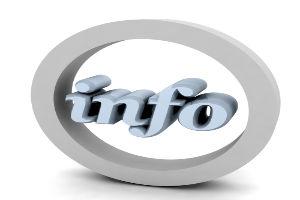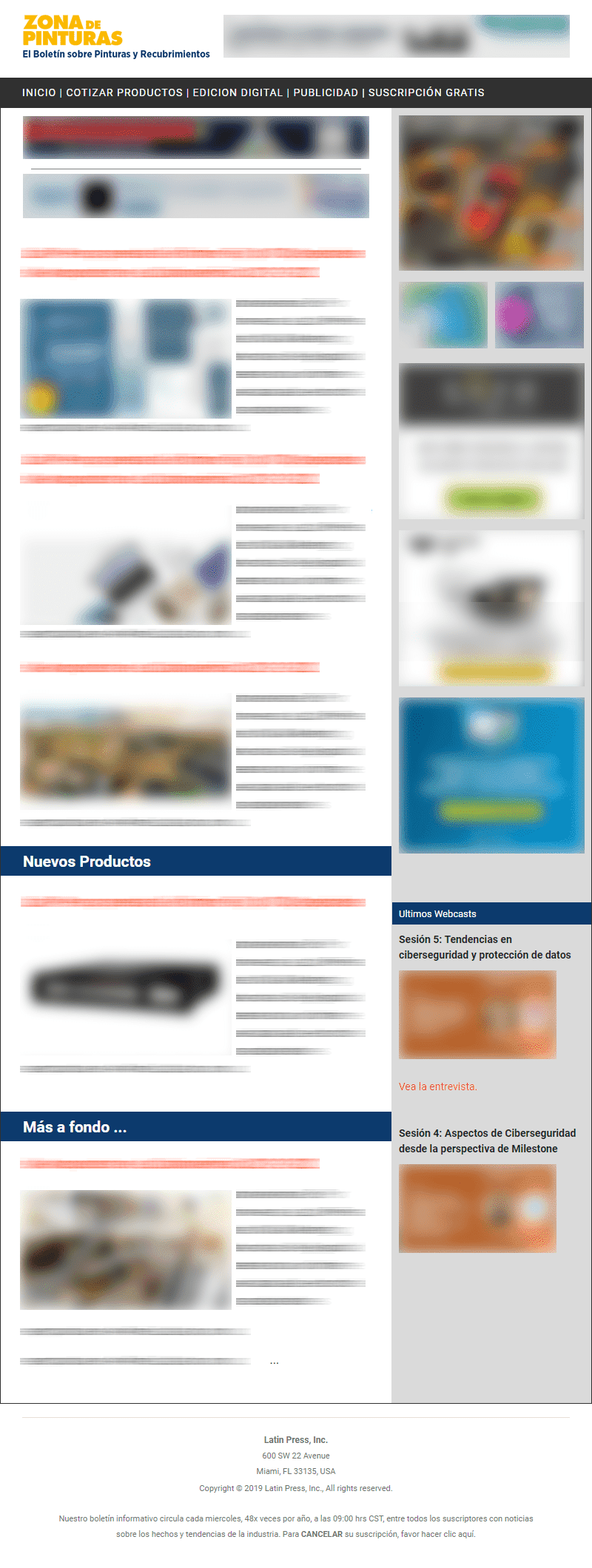 The author presents an analysis of how excess information can affect the process of a research in paintings if it is not managed intelligently.
The author presents an analysis of how excess information can affect the process of a research in paintings if it is not managed intelligently.
by M.Sc. Ph.D. Julián A. Restrepo R.*
At the end of an investigation, when trying to build the theoretical part of a writing (and if you want an article), in the preparation of a report or in the preparation of a presentation, many of us have had to face a very peculiar scenario: if we have little information we complain about the lack of it and in fact, we must document ourselves more to have a minimum of documentary critical mass to be able to make an adequate writing on the topic in the making1.
On the other hand, paradoxically, we also see ourselves in problems in the proper construction of a topic, when we have an excess of information: we must take more time to analyze it and be able to select the most relevant, but the matter is more complicated, if we consider that much of this information is of good quality, so we must invest even more time to understand it and in the end, it becomes a whole gibberish the elaboration of the writing, since we do not want to omit any information, but we are limited by the time, the extension and the spirit of presenting a report as simple as possible, but at the same time, it is painful to do without some information, if it can give you better technical support.
This same situation applies in the modern field to the world of paints and coatings, since considering the growing advance of telecommunications, the massive use of the internet, the improvement of the quality of information on the web, as well as the use of social networks, blogs, forums and technical information and of all kinds in cyberspace, and in general, the way and speed with which we share information on the network.
All this added to the abundance of alternatives in terms of raw materials and suppliers, inputs and related materials, we find a scenario that is far from many years ago, where there was a very low volume of information available, or at least, it was not so accessible, abundant and perhaps, economical. That is why the current formulator faces a situation, at least, paradoxical: having available a volume of technical information such that, certainly, it is excessive...
The basic objective of this article is to review the concept of infoxication as an element to be taken into account in the environment surrounding today's coating formulator, in an environment of abundant office and computer tools.
The speed and accumulation of information
I consider it interesting to begin by analyzing the ideas of the renowned Venezuelan writer Moisés Naím2 [1], who argues that "this is the time of more, this is the revolution of more: There is more of everything, we are living in a world of abundance. There are more people, countries, cities, political parties, armies; more goods and services and more companies that sell them; more weapons and more medicines; more students and more computers; more preachers and more criminals. It is very difficult to govern, to control, to dominate a world in which there is so much abundance. And what do we lose with so much profit? How to stop the avalanche of more? How many more will be too many?" [2]. And in a broader sense, in relation to our connection to our current society, there are those who claim that we are in fact "hyperconnected but alone", "overinformed but ignorant" [3].
As an analogy, we can analyze the current situation faced by some areas of R &D of numerous painting companies, which have, in many cases, multiple quality management tools, various databases accessible to various users, software and multiple office tools, as well as the availability of equipment for consultation and a large amount of bibliographic material (in the form of books, documents, records, etc.), in general, a large volume of information, both physical and electronic, but due to the limitation of time3, insufficient technical staff, work overload and in general, multiple activities to be completed in very short timeframes, and in a rush to obtain results, it is not surprising that technical staff end up using only a small and limited part of all available information, and in many cases, using only the one that is most available (at hand) and not necessarily, the most relevant.
On the other hand, we could reflect, if a technician tried to analyze in detail a greater volume of the available information, he should take into account that, according to experts, for example in the case of scientific and duly indexed information, it is said that about 1% of such published information is useful4. That is, at this point, the dilemma lies in the fact that when a technical team tries to give answers more quickly, it is sacrificing available information that it has failed to analyze and process.
But paradoxically, if this technical team managed to invest more time in the analysis of the information that could be omitted, apparently, there is also no guarantee of obtaining a report with better technical support. This is therefore an interesting paradox that can be better understood in terms of the principle of "Hanlon's Razor", an extension of Murphy's Law: "the perversion of the universe tends to the maximum" [4], and from the author's point of view, this justifies the phrase, "the less you know the happier you are".
In any case, it is undeniable that, and especially, compared to the information available in the past, our technicians currently have, especially considering the information on the network, an excess of information available for various raw materials; a larger portfolio of suppliers (manufacturers and suppliers), as well as raw materials; information on imported raw materials is more accessible; greater access to various formulations, either through suppliers, information associated with raw materials or in the technical literature; the quality of the information available also improves, and many of these elements have been significantly integrated by the Internet, and its important role that it has already constituted for a couple of decades in our society today.
So much so that consider, for example, that the ambitious mission of the company Google Inc., according to its founders Larry Page and Sergey Brin, is to organize the information of the world and make it accessible and useful universally [5].
The concept of Infoxication
The broader concept of Infoxication relates to the terms: "information overload", "information overload", "infobesity" or "information intoxication". The term information overload was coined in 1970 by Alvin Toffler in his book Future Shock [6]. For its part, the concept of Infoxication as such was first coined by Alfons Cornellá, Founder and President of Infonomía at the end of 1999 [7].
References
[1] http://en.wikipedia.org/wiki/Mois%C3%A9s_Na%C3%ADm#Efecto_Na.C3.ADm
[2] (a) http://bajolamanga.co/index.php/columnas/item/437-suicidio-y-la-necesidad-de-desacelerar-el-paso ; b) www.youtube.com/watch?v=1MkOTKPPWa8
[3] http://blogs.elespectador.com/bajo-la-manga/2015/02/01/suicide-and-the-need-to-decelerate-the-step/
[4] http://www.infonomia.com/wp-content/uploads/2014/05/948_infoxicacion.pdf
[5] http://www.google.com/intl/es_co/about/company/
[6] http://en.wikipedia.org/wiki/Sobrecarga_informativa
[7] http://papelesdeinteligencia.com/que-es-la-infoxicacion/
Footer
1. At this point we must keep in mind the famous phrase: "To write of one is to copy, to write of many is to investigate"
2. The British magazine Prospect included him in 2013 in the list of the most outstanding intellectuals on the planet.
3. Although it is clear that, in many cases, the lack of time is explained due to poor planning or classification of the most relevant activities.
4. Paradoxically, this article itself will contribute to swelling this list.
* M.Sc. Ph.D. Julián A. Restrepo R. Thecnical Manager of PPG Industries Colombia. [email protected]
























Leave your comment